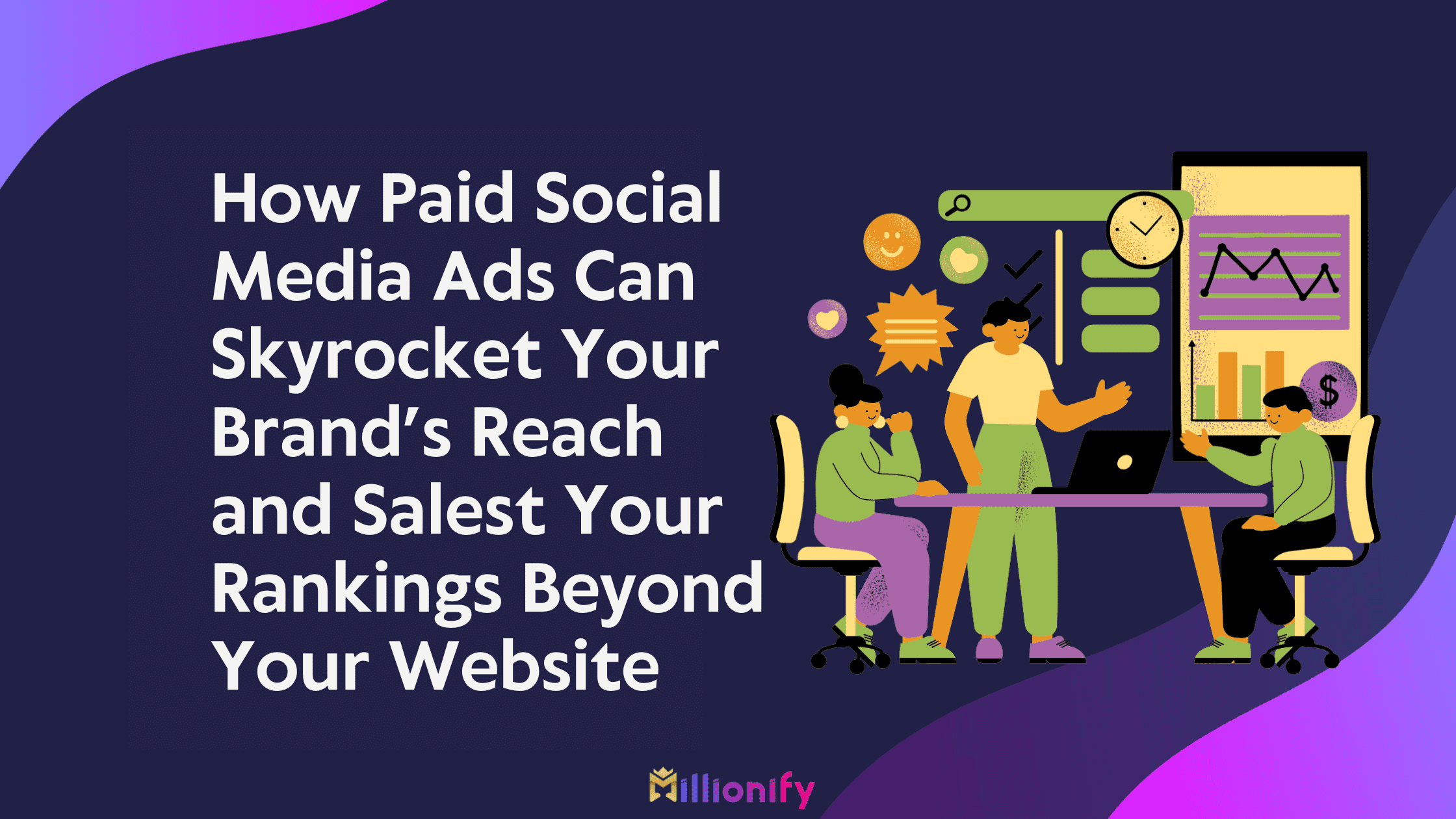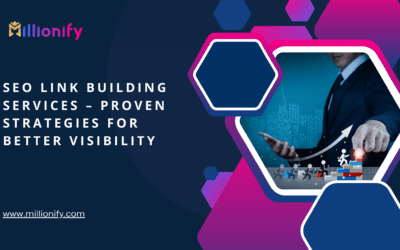In the fast-paced digital world, businesses are finding it increasingly difficult to rely solely on organic reach to get their message across. The days when a simple post on Facebook or a new blog would attract thousands of viewers without a single dollar spent are long gone. Today, social media algorithms are making it harder for businesses to get organic visibility without investing in paid advertisement services.
Paid social media advertising offers an unmatched blend of precision and scale—brands can target specific audiences by demographics, interests, behaviors, and more, minimizing wasted spend while maximizing engagement and conversions. For instance, consistent branding through paid ads can boost brand recall by up to 80%, making your message more memorable and driving a greater likelihood of consumer action.
Organic content simply doesn’t have the same reach it once had. Why is that? Social media platforms, including Facebook, Instagram, and others, have gradually reduced the organic reach of business accounts to prioritize posts from personal connections. At the same time, the online space has become more saturated, with more businesses fighting for attention. This means that even well-crafted organic content can get lost in the noise.
So, how can businesses still reach their target audience effectively? That’s where paid ads come into play. Unlike organic posts, paid ads allow businesses to cut through the clutter and reach specific audiences who are more likely to engage with their brand. Let’s dive into the different types of paid advertisement services available and how they can transform your business.
Types of Paid Advertisement Services
Paid ads come in different forms, each with its unique advantages. Here are the most common and effective types of paid advertisement services:
Social Media Ads (Facebook, Instagram, TikTok)
Social media ads have quickly become a dominant force in the digital advertising world. Whether you’re looking to promote a new product, increase brand awareness, or drive website traffic, social media platforms offer targeted advertising solutions.
- Facebook Ads: Facebook remains a powerhouse for advertisers. Its sophisticated ad manager allows businesses to target users based on demographics, interests, behavior, and more. Facebook Ads can appear in users’ feeds, stories, and even as sponsored posts in Messenger.
- Instagram Ads: Since Instagram is owned by Facebook, its advertising capabilities are very similar. With Instagram Ads, businesses can promote visual content—photos, videos, or carousel ads—that blend seamlessly into users’ feeds and stories. It’s an ideal platform for brands with strong visual appeal.
- TikTok Ads: TikTok is relatively new to the advertising scene, but it’s growing fast. TikTok Ads allow businesses to create engaging, short-form video content that reaches a highly active, younger audience. Brands can use in-feed videos, branded hashtag challenges, and even partner with influencers to maximize their reach.
Google Ads & YouTube Ads
When people think of online ads, Google Ads is often the first thing that comes to mind. Google Ads is one of the most widely used platforms for businesses aiming to show up on search engines when potential customers search for relevant keywords.
- Google Search Ads: These are text-based ads that appear on the Google search results page when a user searches for keywords relevant to your business. With Google Ads, you can bid on keywords and create ads that will appear at the top of the search results, driving traffic directly to your website.
- Google Display Ads: These are banner-style ads that appear on websites within Google’s Display Network. They help you reach a wide audience as users browse online, often appearing on news sites, blogs, or YouTube.
- YouTube Ads: YouTube is the second-largest search engine in the world, and its ad platform is a great way to promote video content. Ads can appear before, during, or after videos on YouTube, making it a fantastic way to engage users with immersive content.
Retargeting Campaigns
Ever visited a website, left without purchasing anything, and then noticed ads from that same website following you around? That’s retargeting at work. Retargeting campaigns are designed to reach people who have already interacted with your business but didn’t take action.
These ads are shown to users who’ve previously visited your site, viewed a product, or added something to their cart but didn’t complete the purchase. Retargeting ads are highly effective because they’re aimed at users who have already shown interest, making them more likely to convert.
Creating Effective Ad Campaigns
Creating successful ad campaigns isn’t just about throwing some money into the mix and hoping for the best. A good paid ad strategy requires careful planning and execution.
Audience Targeting
One of the greatest advantages of paid ads is the ability to target specific audiences. Using data points like demographics, interests, online behavior, and even previous interactions with your website, you can make sure your ads are seen by the right people. This means less wasted spend and more effective ad performance.
Creative Design
The best ads are not only well-targeted but also visually appealing. Whether it’s a static image, video, or interactive content, your ad’s design should capture attention immediately. Creative design should align with your brand’s message while being eye-catching enough to stop users from scrolling.
A/B Testing
A/B testing, or split testing, is a crucial part of running successful ad campaigns. This process involves creating two (or more) variations of an ad and testing them against each other to see which performs better. Elements you can test include ad copy, images, calls-to-action (CTA), or even the target audience.
Benefits of Paid Ads
Why should businesses invest in paid ads? The benefits are clear:
- Instant Visibility: Paid ads provide immediate exposure to your target audience, unlike organic marketing efforts that may take time to gain traction.
- Laser-Focused Targeting: Paid ads allow you to target specific audiences based on their interests, location, age, gender, and online behavior.
- Measurable ROI: One of the most significant advantages of paid advertising is that every aspect of the campaign can be tracked, measured, and analyzed. You’ll know how much traffic, leads, or sales your ads are generating, allowing you to calculate a clear return on investment.
| Platform | Average CTR | Conversion Rate |
|---|---|---|
| Facebook Ads | 0.90% | 9.21% |
| Google Search Ads | 3.17% | 4.40% |
| YouTube Ads | 0.65% | 14.29% |
Choosing the Right Ad Platforms for Your Business
Choosing the right platform for your paid ads is crucial to the success of your campaign. Different platforms cater to different audiences, so it’s essential to know where your target audience is most active.
- Social Media Platforms: Great for businesses targeting a younger, visually engaged audience.
- Google Ads: Best for businesses looking to capture intent-driven searches—people actively looking for products or services like yours.
- YouTube Ads: Ideal for brands with strong video content and those looking to engage users with longer-form content.
Match your platform to your business goals and the behavior of your audience.
Tracking Ad Performance
To ensure the success of your paid ad campaigns, it’s vital to track performance metrics.
- Impressions: How many times your ad is shown to users.
- Click-Through Rate (CTR): The percentage of users who clicked your ad after seeing it.
- Conversions: The number of users who took a desired action (like purchasing a product or signing up for a newsletter) after clicking your ad.
Tracking these key performance indicators (KPIs) helps you understand how your campaigns are performing and what changes might be needed.
Conclusion: How Paid Ads Can Transform Business Growth
Paid ads are not just a temporary solution for businesses struggling with organic reach—they’re a powerful tool for sustained growth. Whether you’re using social media, Google, or YouTube, paid ads offer instant visibility, targeted engagement, and measurable results that are hard to achieve with organic methods alone.
At Millionify, we specialize in creating and managing high-converting paid ad campaigns for businesses of all sizes. Our team takes care of every aspect of your campaign, from targeting the right audience to crafting compelling creatives and analyzing performance. Let us help you unlock the full potential of paid ads and drive growth for your business.
FAQs
Q1: What is the difference between organic and paid reach?
Organic reach refers to the number of people who see your content without any paid promotion. Paid reach, on the other hand, involves paying for visibility, typically through ads on platforms like Facebook, Google, or Instagram.
Q2: How much should I budget for paid ads?
The budget for paid ads varies depending on your business goals, target audience, and the platform you choose. A good starting point is to test with a smaller budget and scale as you see positive results.
Q3: How do I know which platform to choose for my ads?
You should choose a platform based on where your target audience spends the most time. If you’re targeting younger users, TikTok and Instagram might be the way to go, while Google Ads works well for intent-driven searches.
Q4: How often should I update my ad campaigns?
It’s essential to monitor your ad campaigns regularly and update them as necessary. Typically, ad creatives and targeting should be refreshed every few weeks to avoid audience fatigue and maintain effectiveness.
Q5: Can small businesses benefit from paid ads?
Absolutely! Paid ads can be highly cost-effective for small businesses. Even with a small budget, you can target your ads to specific audiences, ensuring your money is spent efficiently.



